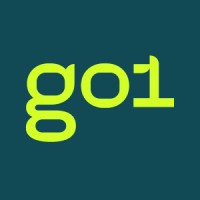
Building skills for your global workforce

During WorkRamp’s recent LEARN Europe event, hosted by its CEO Ted Blosser, Go1 CEO and Co-Founder Andrew Barnes delivered the closing keynote, addressing how Go1 helps companies thrive in an interconnected world. Below, we've recapped the highlights of this keynote address.
Andrew began by explaining Go1’s history, describing Go1 as "global in nature” and an organisation “that thrives by partnering with companies and helping people learn new skills worldwide.”
The two panel members then discussed Go1’s recent acquisition of Blinkist.
Andrew explained that both companies have a very similar model, partnering with book authors and publishers to bring insights to life and distil knowledge quickly. He mentioned that he and Blinkist “have had a great relationship for years and it became obvious very quickly they had a shared mission. It only made sense to combine their efforts to be able to bring something exciting to their collective customers.”
Andrew also teased that the most exciting part “is yet to come.” The acquisition organically emerged through an existing relationship, and they can’t wait to find “a common view on how to operate together going forward. Building the business together and providing value to customers.”
Ted went on to ask for Andrew’s take on skills in the past, present, and future.
Andrew explained that he and Ted had met in 2016, and back then “the entire skills, e-learning and LMS models were broken.” But it meant there was an “opportunity”. After founding Go1, it became clear that “the model for learning had not changed for decades.” Having spoken to businesses across all industries, Andrew understood that trying to train so many individual roles “only increased in complexity as knowledge became more and more specialised.” It was an enormous challenge that posed questions such as “how do you help a team learn new skills when there are so many skills to cover? Can a platform make it easier to discover content? How would we make it easy to access and how do we help people find the correct content for them?”
Andrew saw small businesses struggling to equip their staff with the correct training, while slightly bigger enterprises were forced to procure training and content from over 40 vendors to meet requirements for the whole organisation. He added that “gaining new content and material is a constant evolution and the process needs to be less labour intensive.”
Ted then asked about the skills market today. Andrew explained that “one of the biggest things we’re seeing is the need to make skills simple to access. Go1 is dedicated to making learning seamless, even if you’re in the car and learning through CarPlay.”
“Not only that, but there is a growing need for a coverage of topics for specialisations. It is important that Go1 focuses on facilitating access in locations around the world as well as in different languages but also ensuring that the content offering aligns with the strategic development of a business.”
“If a customer is focusing on particular management programs, it might be that content from Harvard Management is best applicable and therefore it becomes a case of supplying them with training that matches their vision of management and one that shares the same values.”
Following this, Ted asked how Andrew saw the market evolving around skills in the short and medium-term future. Andrew emphasised that “the specialisation of knowledge will continue to accelerate but the idea of not needing to reskill is something of the past.” He added that “it is impossible to know what roles there will be in the future and what different formats of skills will be needed.”
“Having said that, learning skills in a more immersive sense is something to keep an eye on. Virtual or augmented reality training could be a way to expose learners to different ways of learning.”
“Tell us about how it's been building a global company that is all aligned and growing in the same direction?” Ted asked.
“Very challenging,” said Andrew. “Go1 is made up of over 1,000 employees across 30 different countries and therefore that challenge comes with a level of complexity. When the business started, it was straightforward. Being in one office means that it happens organically, but as the company expanded over various time zones and languages, the direction needed to be more intentional. It’s about being repetitive and consistent and explicit communication especially becomes really important.”
Andrew’s final comments were that “Go1 is constantly looking internally and asking how do we unlock learning opportunities for our staff? And how do we create a daily or weekly learning habit?” Additionally, he is “excited to continue partnering with businesses to help cover a broader set of opportunities, and practising this internally to be able to figure out how best to implement learning to others across the globe.”
Catch up on the recording here!
For more insights, subscribe to the Go1 newsletter to stay on top of all the latest L&D trends. Or, you can book a demo today to find out how Go1 can help with your team’s learning needs.




